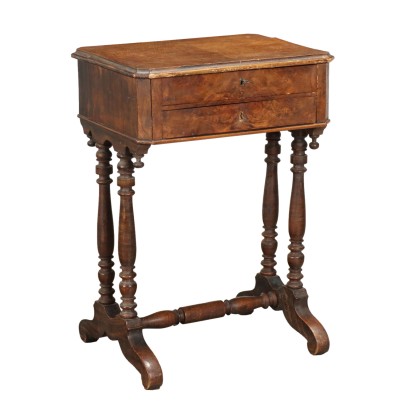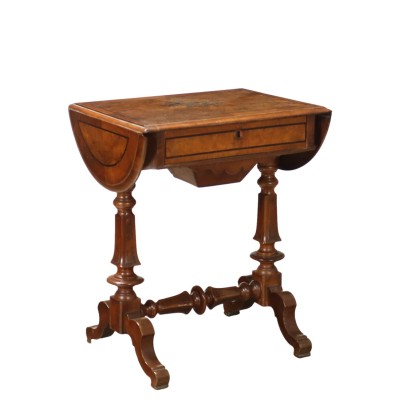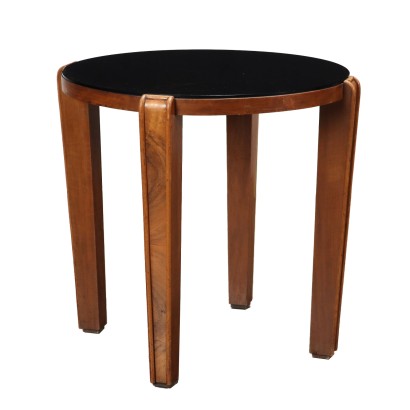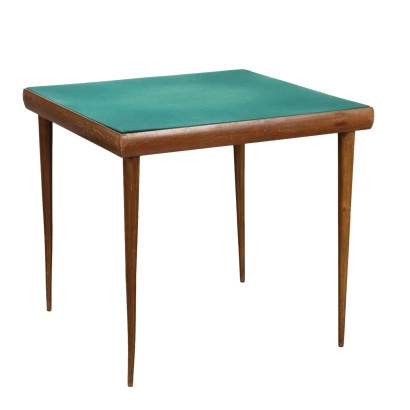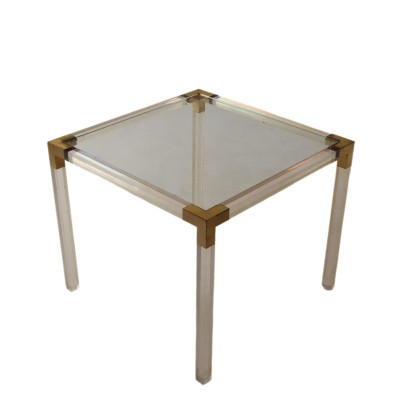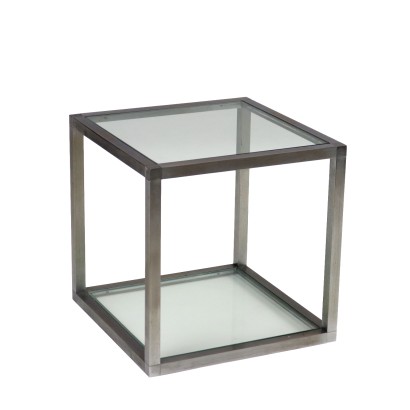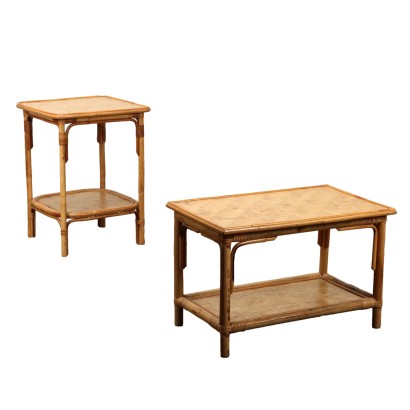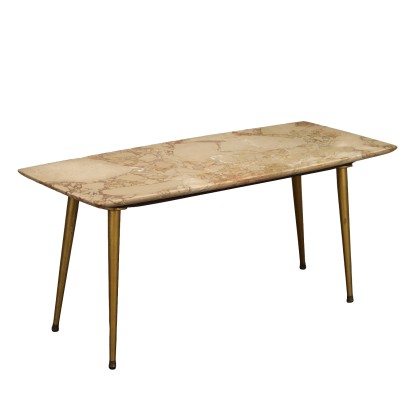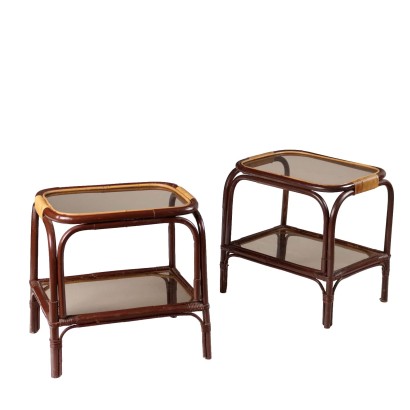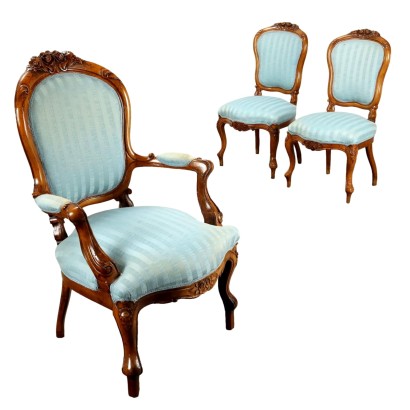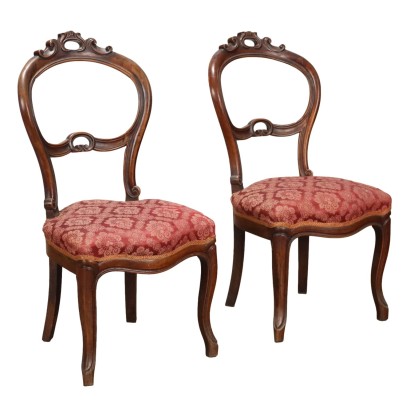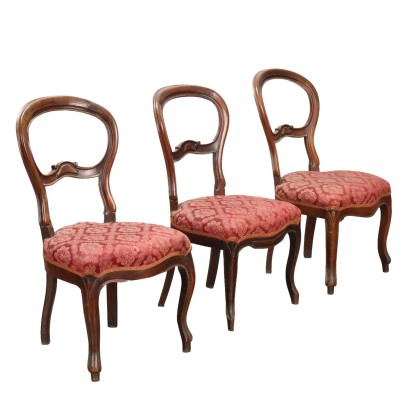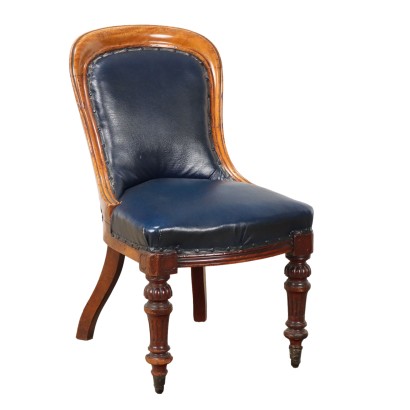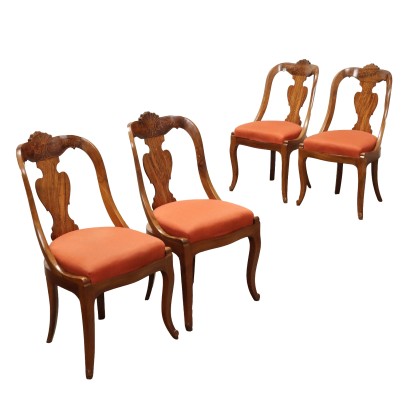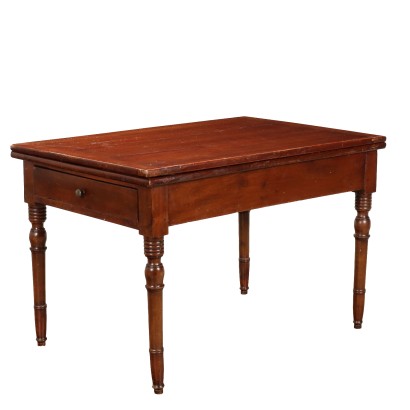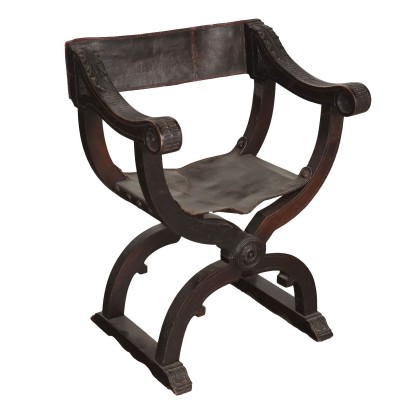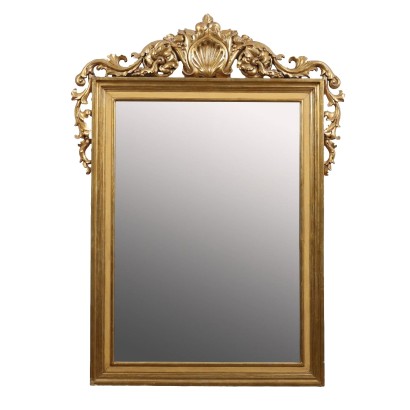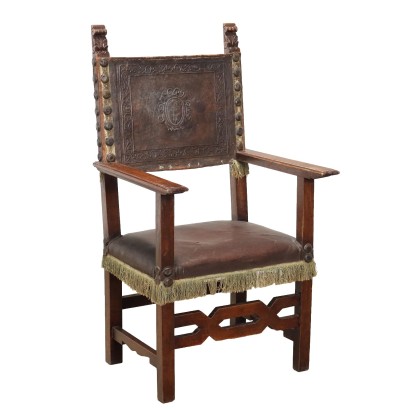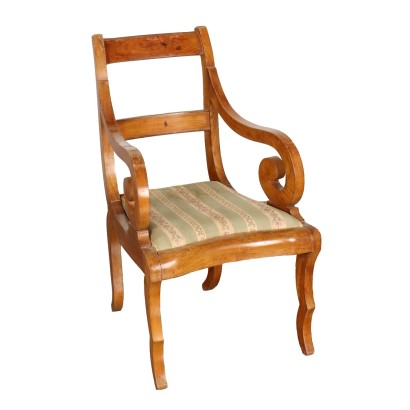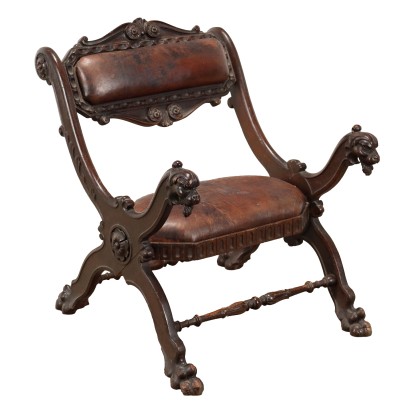Antique Working Table Louis Philippe Walnut Italy XIX Century - Italy, Mid XIX Century
Features
Italy, Mid XIX Century
Style: Louis Philippe (1830-1848)
Age: 19th Century / 1801 - 1900
Origin: Italy
Main essence: Silver Fir , Maple , Walnut , Poplar
Material: Lacquered Wood
Description
Louis Philippe work table in walnut and walnut lacquered fir, Italy mid-19th century. Pair of drawers in the band, turned uprights and crossbar. Interior spruce, maple and poplar.
Product Condition:
Product that due to age and wear requires restoration and re-polishing. We try to present the real state of the furniture as fully as possible with photos. If some details are not clear from the photos, what is reported in the description will prevail.
Dimensions (cm):
Height: 76,5
Width: 53,5
Depth: 41,5
Additional Information
Style: Louis Philippe (1830-1848)
The Louis Philippe style developed in a context characterized by two main factors: the expansion of the bourgeoisie and the advent of the industrialization of production processes.
This style therefore faces the decline of artisans and the new needs for economy and comfort.
Aesthetically, it takes elements from the past, especially from the Gothic and Renaissance, preferring very curved shapes for the backrests of the seats, roe deer legs and feet, with a very rich decoration.
It mainly uses dark woods: ebony, rosewood and mahogany, combined for contrast with light elements.
Find out more with our insights:
The Louis Philippe style
Classic Monday: Louis Philippe and Umbertina consoles compared
The Austrian taste of Baroque
History of Louis Philippe furniture
The Umbertino style
Antiques in Lombardy
The Evolution of the Empire Style
Age: 19th Century / 1801 - 1900
19th Century / 1801 - 1900Main essence:
Silver Fir
Soft coniferous wood, used for rustic furniture or to build the chest, that is the structure, of furniture then veneered in more precious woods. It has been used since ancient times, its most valuable use is, in the Spruce variant, in the inlays of French antique furniture of the '700 . The spruce, more typical of northern Europe, in Italy grows mainly in the Eastern Alps at altitudes above 1300 m. The noblest use of this essence was in the construction of violins, guitars and cellos: Stradivari himself produced his famous violins with this wood.Maple
Hard, light wood used for inlays. It grows mainly in Austria, but it is widespread throughout the northern hemisphere, from Japan to North America, passing through China and Europe. It is one of the lightest woods ever, tending to white, it is similar to lime or birch wood. The briar is used in the production of ancient secretaires .Walnut
Walnut wood comes from the plant whose botanical name is juglans regia , probably originally from the East but very common in Europe. Light or dark brown in color, it is a hard wood with a beautiful grain, widely used in antique furniture. It was the main essence in Italy throughout the Renaissance and later had a good diffusion in Europe, especially in England, until the advent of mahogany. It was used for solid wood furniture and sometimes carvings and inlays, its only big limitation is that it suffers a lot from woodworm. In France it was widely used more than anything else in the provinces. In the second half of the eighteenth century its use decreased significantly because mahogany and other exotic woods were preferred.Poplar
Essence considered "poor", it is a white wood, with yellowish or greyish shades, light and tender, which is easily damaged. It is used for rustic furniture or in the construction of furniture. The most valuable use it has had in the history of furniture is in Germany, in the 19th century, for veneers and inlays in the Biedermeier period.Material: Lacquered Wood
Other customers have searched:
Tavolini, tavolino antico..
Approfondimenti
Se ti interessano tavoli, tavolini, tavoli a vela, scrivanie, scrittoi e consolle dai un'occhiata ai nostri approfondimenti sul blog...
L'antiquariato dalla A alla Z: il Dizionario dell'Antiquariato
Il dizionario dell'antiquariato - Lastronatura
Il dizionario dell'antiquariato - Mascherone
Il dizionario dell'antiquariato - Natura morta
Il dizionario dell'antiquariato - Opificio
Il dizionario dell'antiquariato - Pastiglia
Il dizionario dell'antiquariato - Savonarola
Il dizionario dell'antiquariato - Rosone
Intaglio barocco con motivo a ricciolo
Sui tavoli:
Il Neobarocco in un grande tavolo dell'800
Il Tavolo a fratino
Sui tavolini:
Breve storia dei tavolini
Un tavolino impero lombardo: segno di egemonia politica
Il tavolino da gioco, questo sconosciuto
Il dizionario dell'antiquariato – tavolino a Commesso
...e alle presentazioni su FineArt
Tavoli antichi:
Tavolo campionario lapideo, Roma, Opificio Raffaelli
Tavolo a vela, attribuibile a Luigi e Angiolo Falcini
Tavolo attribuibile a Luigi e Angiolo Falcini
Gueridon, Regno delle Due Sicilie, primo quarto XIX secolo
Tavoli modernariato e design:
Archivio Borsani, patrimonio di memorie e saperi
Tavolo anni '40 ABV
Tavolo Mario Vender Anni '60
Tavolo anni '50 ABV
Tavolo '522' Gianfranco Frattini per Bernini
Tavolo 'Barium' Luciano Frigerio
Tavolo anni '50, Manifattura Italiana
Tavolini antichi:
Coppia di tavolini Tomaso Buzzi, attribuiti
Tavolino da gioco, Bottega Giuseppe Maggiolini, inizi XIX secolo
Tavolini modernariato:
Tavolino anni '50
Tavolino anni '40 ABV
Approfondimenti
Se ti interessano tavoli, tavolini, tavoli a vela, scrivanie, scrittoi e consolle dai un'occhiata ai nostri approfondimenti sul blog...L'antiquariato dalla A alla Z: il Dizionario dell'Antiquariato
Il dizionario dell'antiquariato - Lastronatura
Il dizionario dell'antiquariato - Mascherone
Il dizionario dell'antiquariato - Natura morta
Il dizionario dell'antiquariato - Opificio
Il dizionario dell'antiquariato - Pastiglia
Il dizionario dell'antiquariato - Savonarola
Il dizionario dell'antiquariato - Rosone
Intaglio barocco con motivo a ricciolo
Sui tavoli:
Il Neobarocco in un grande tavolo dell'800
Il Tavolo a fratino
Sui tavolini:
Breve storia dei tavolini
Un tavolino impero lombardo: segno di egemonia politica
Il tavolino da gioco, questo sconosciuto
Il dizionario dell'antiquariato – tavolino a Commesso
...e alle presentazioni su FineArt
Tavoli antichi:
Tavolo campionario lapideo, Roma, Opificio Raffaelli
Tavolo a vela, attribuibile a Luigi e Angiolo Falcini
Tavolo attribuibile a Luigi e Angiolo Falcini
Gueridon, Regno delle Due Sicilie, primo quarto XIX secolo
Tavoli modernariato e design:
Archivio Borsani, patrimonio di memorie e saperi
Tavolo anni '40 ABV
Tavolo Mario Vender Anni '60
Tavolo anni '50 ABV
Tavolo '522' Gianfranco Frattini per Bernini
Tavolo 'Barium' Luciano Frigerio
Tavolo anni '50, Manifattura Italiana
Tavolini antichi:
Coppia di tavolini Tomaso Buzzi, attribuiti
Tavolino da gioco, Bottega Giuseppe Maggiolini, inizi XIX secolo
Tavolini modernariato:
Tavolino anni '50
Tavolino anni '40 ABV
Product availability
The product can be seen at Cambiago
Immediate availability
Ready for delivery within 2 working days from ordering the product.



